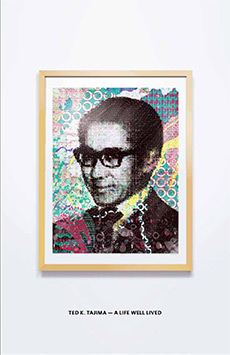When you read this, I will be returning from a memorial service in Southern California for a long-retired teacher.
It’s relevant because if I had never met Ted Tajima more than 40 years ago, I probably would not be reporting state government and politics—or anything else—or even writing this column.
It’s a cliche, but he was a teacher who made a difference in one student’s life—mine.
He was always “Mr. T” to me while I was at Alhambra High School, where he taught English and journalism for 35 years, and later, just “T.” Those who were among the last of his students called him the “good Mr. T,” to distinguish him from the character on the TV series “The A-Team.”
He was born in Salt Lake City in 1922, and was at Occidental College when Japan attacked the U.S. fleet at Pearl Harbor on Dec. 7, 1941. He voluntarily relocated to Salt Lake City, then Cleveland—so he was not forced into an internment camp—but eventually earned his degree at Occidental and served in the Army.
I’m still not sure why I enrolled in journalism my junior year back in 1968, when the Kerner Commission criticized the lack of minority journalists in the nation’s mainstream newspapers and broadcast stations as a factor in what it called the nation’s move toward two societies.
Like most Asian Americans of my generation, I fully expected to go into the sciences or a health-related profession.
Tajima was unfailingly patient, helping students learn (but not shielding them) from their mistakes while in the classroom and on the student newspaper. He also was persistent, particularly about deadlines. Back then, stories were still written on typewriters and the copy set in metal by a linotype machine—19th century technology compared to today’s digital world.
His only apparent failing: When I had to go to the teachers’ lounge and knock on the door, he often would be smoking.
During the late 1960s, in response to some of the failings of mainstream journalism, critics called for advocacy journalism with a point of view, and young journalists often were strident in their language.
Tajima never bought either of those concepts, even though he was not deaf to them. He always stressed the infamous who-what-where-when-why-and-how—although he said reporters ought to explain why something happened, not just report what happened. He also encouraged young journalists, especially minorities, to change the news business from inside.
It took me about halfway through college to commit to that direction. But I did. When I started in 1975, about 1 percent of the nation’s newsrooms were staffed with reporters of color—and by the time of first official American Society of News Editors census in 1978, it had grown to about 4 percent. (In 2010, it was 13.26 percent, still below the goal of matching the share of minorities in the nation’s population.)
Tajima never denied his ethnicity.
A couple of years before he retired in 1983—by this time I was in Oregon—he mentioned that a group of Asian American journalists were forming their own organization. I joined the Asian American Journalists Association in 1987, when it had its first national convention in Los Angeles. Last year, I sat on its national advisory board, and this year, I am co-president of its Portland chapter that covers Oregon.
It was on the eve of its convention last year; also held in Los Angeles, that I last saw Tajima a few days before he turned 88. A month later, while I was in California for my 40th high-school reunion, I called him—but he said he couldn’t get out of bed.
So it was with great sadness, but not real surprise, that I received the news from a classmate who had been my assistant as sports editor of the high school newspaper—and today sits on the school board. He told me Tajima had died Feb. 20 of complications from emphysema.
I was in the middle of reporting a hearing on tobacco-control bills, of all things. I went back to work and completed the story. After all, Mr. T would have wanted me to make deadline—and I did.
Peter Wong, Statesman Journal.
Alhambra High Class of 1970,
Editor of Moor Fall 1969
Retrieved from the Statesman Journal on March 16, 2011 originally posted March 13, 2011 at  http://www.statesmanjournal.com/article/20110313/COLUMN0108/103130352/1064/COLUMN/Journalism-teacher-made-difference-one-student-s-life

